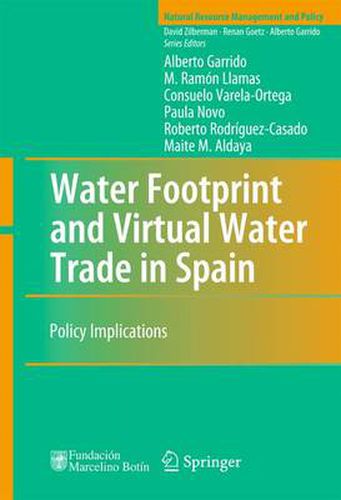Readings Newsletter
Become a Readings Member to make your shopping experience even easier.
Sign in or sign up for free!
You’re not far away from qualifying for FREE standard shipping within Australia
You’ve qualified for FREE standard shipping within Australia
The cart is loading…






This title is printed to order. This book may have been self-published. If so, we cannot guarantee the quality of the content. In the main most books will have gone through the editing process however some may not. We therefore suggest that you be aware of this before ordering this book. If in doubt check either the author or publisher’s details as we are unable to accept any returns unless they are faulty. Please contact us if you have any questions.
1.1 General Framework In most arid and semi-arid countries, water resource management is an issue that is both important and controversial. Most water resources experts now acknowledge that water conflicts are not caused by physical scarcity but are mainly due to poor water management (Rosegrant et al. 2002; Benoit and Comeau 2005; Comprehensive Assessment of Water Management in Agriculture 2007; Garrido and Dinar 2010, among others). The scientific and technological advances of the past 50 years have led to new ways to solve many water-related conflicts, often with tools that seemed unthinkable a few decades ago (Llamas 2005; Lopez-Gunn and Llamas 2008). This study deals with the estimation and analysis of Spain’s water footprint, both from a hydrological and economic perspective. Its ultimate objective is to report on the allocative efficiency of water and economic resources. This analysis can provide a transparent and multidisciplinary framework for informing and optimising water policy decisions, contributing at the same time to the implementation of the EU Water Framework Directive (WFD) (2000/60/EC). It also responds to the current mandate of the Spanish Ministry of Environment and Rural and Marine Affairs, which recently issued instructions for drafting river basin management plans in compliance with the EU Water Framework Directive, with a deadline of end of year 2009 and then every 6 years (BOE 2008).
$9.00 standard shipping within Australia
FREE standard shipping within Australia for orders over $100.00
Express & International shipping calculated at checkout
This title is printed to order. This book may have been self-published. If so, we cannot guarantee the quality of the content. In the main most books will have gone through the editing process however some may not. We therefore suggest that you be aware of this before ordering this book. If in doubt check either the author or publisher’s details as we are unable to accept any returns unless they are faulty. Please contact us if you have any questions.
1.1 General Framework In most arid and semi-arid countries, water resource management is an issue that is both important and controversial. Most water resources experts now acknowledge that water conflicts are not caused by physical scarcity but are mainly due to poor water management (Rosegrant et al. 2002; Benoit and Comeau 2005; Comprehensive Assessment of Water Management in Agriculture 2007; Garrido and Dinar 2010, among others). The scientific and technological advances of the past 50 years have led to new ways to solve many water-related conflicts, often with tools that seemed unthinkable a few decades ago (Llamas 2005; Lopez-Gunn and Llamas 2008). This study deals with the estimation and analysis of Spain’s water footprint, both from a hydrological and economic perspective. Its ultimate objective is to report on the allocative efficiency of water and economic resources. This analysis can provide a transparent and multidisciplinary framework for informing and optimising water policy decisions, contributing at the same time to the implementation of the EU Water Framework Directive (WFD) (2000/60/EC). It also responds to the current mandate of the Spanish Ministry of Environment and Rural and Marine Affairs, which recently issued instructions for drafting river basin management plans in compliance with the EU Water Framework Directive, with a deadline of end of year 2009 and then every 6 years (BOE 2008).